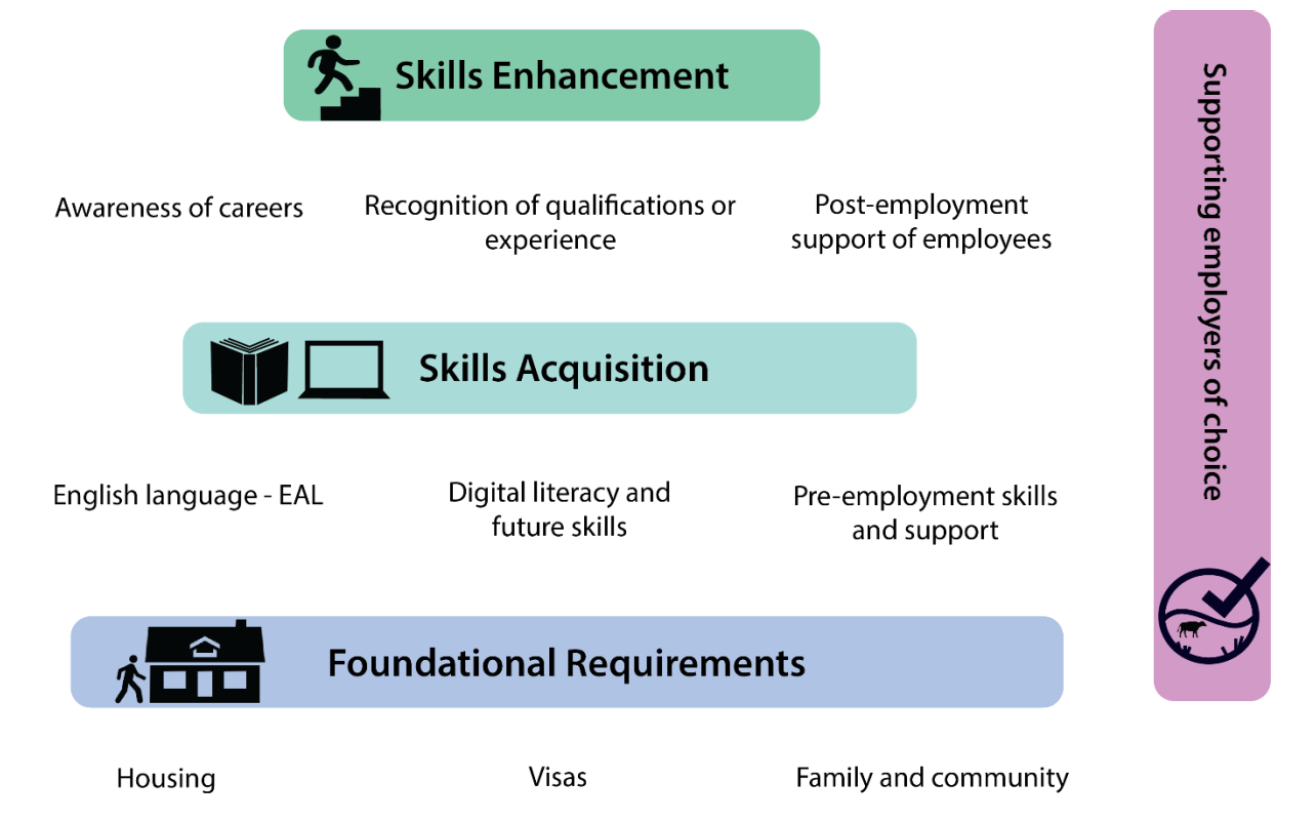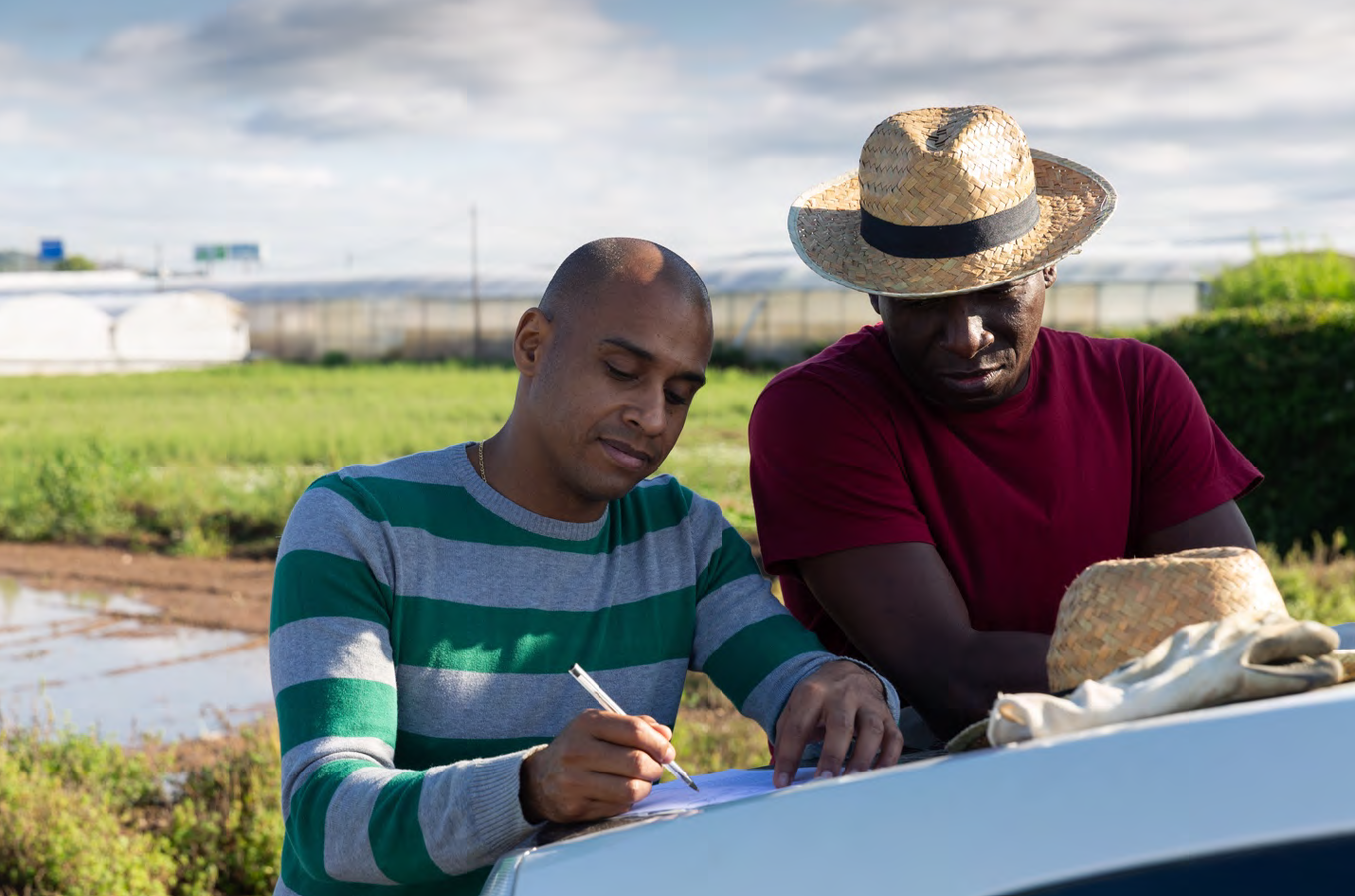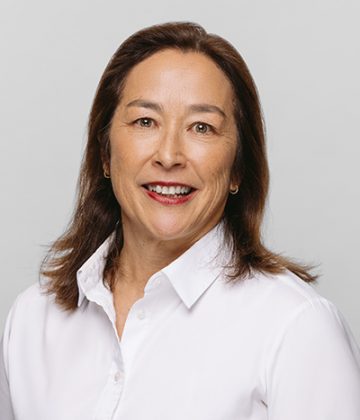Opportunities for CALD communities in agriculture
Culturally and Linguistically Diverse (CALD) communities have a strong potential to fill skills gaps in Victoria's agriculture industry.
People from CALD backgrounds make up a minimum of 11% of Australia’s agricultural workforce. However, an opportunity exists to capture their diverse skills, experience and ideas to fill skills gaps in agriculture and strengthen the industry for the future.
During the COVID-19 pandemic in 2020 – where Victorian agricultural business navigated border closures, supply chain disruptions and workforce uncertainty – Agriculture Victoria commissioned a social research study to capture critical insights of CALD communities and their interest in working in agriculture as part of its Smarter Safer Farms project.
Project approach
Our team conducted a mapping exercise to establish where large CALD populations overlapped with significant areas of potential agriculture employment across the state. Four areas of Victoria were chosen for further study – Gippsland, Mildura/Swan Hill, Shepparton and South West Victoria.
A desktop review and interviews were then conducted with CALD settlement agencies and individuals, agricultural industry bodies and businesses and educational institutions.
The project considered the existing skills and workforce gaps for the agricultural sector, the barriers preventing CALD communities from pursuing a career in agriculture and the opportunities to overcome those barriers.
As agricultural areas and jobs are mostly found in rural and regional areas, we also investigated the importance of settlement and support services in those regions and how they are a key factor in encouraging CALD communities into a career in agriculture.
How CALD communities can fill skills gaps in dairy and horticulture
A follow-on project also explored the skills of Australians (including permanent residents and those on visas) from CALD backgrounds and how they compared with the skills gaps that dairy and horticulture industries are experiencing, which in many cases are well beyond what is required for entry level labour jobs. It then provided recommendations to ensure both the Victorian dairy and horticulture industries and CALD communities thrive into the future.
We spoke to industry peak bodies, education providers, organisations that work with CALD communities, farm businesses and individual employees from CALD backgrounds. This culminated in an action plan for the dairy industry to lead with the support from those involved in the working groups established as part of this project. A summary of the elements of the action plan can be seen in the image below.

Key findings from the follow-on project include:
- Relationships and trust are particularly important for people with English as an alternative language who are working in regional areas where support networks and career information are not as readily available as in city locations
- Patience and persistence is required when reaching out to individual CALD community members to talk about their experience and the potential mechanisms for support
- Many individuals from CALD backgrounds had a long term commitment to dairy farming and a “passion for farming”
- Many farmers are going well out of their way to provide support for CALD individuals and are, in turn, reaping the benefits of retaining skilled committed employees
- Employees from CALD backgrounds have gone to significant efforts to stay and work in Australia (i.e. endless applications for visas, educational courses, returning to countries of origin, coming via other countries and much more) which shows their sheer determination, resilience, creativity and persistence
- Likewise, the efforts of employers to support their CALD employees (i.e. sourcing housing, assisting with applications for visas, educational forms, essays for education, social connections and much more) are true examples of what industry should aspire to and support in terms of ‘employers of choice’.
Click here to read the final report: Skills gaps in agriculture and skills of CALD people.
More information
For more information please contact RMCG Senior Consultant Deborah Prentice at deborahp@rmcg.com.au and 0412 215 328, or Agriculture Victoria Regional Manager, Dairy, South East, Del Delpitiya at del.delpitiya@agriculture.vic.gov.au.
Find out more about our expertise in workforce development and planning.




